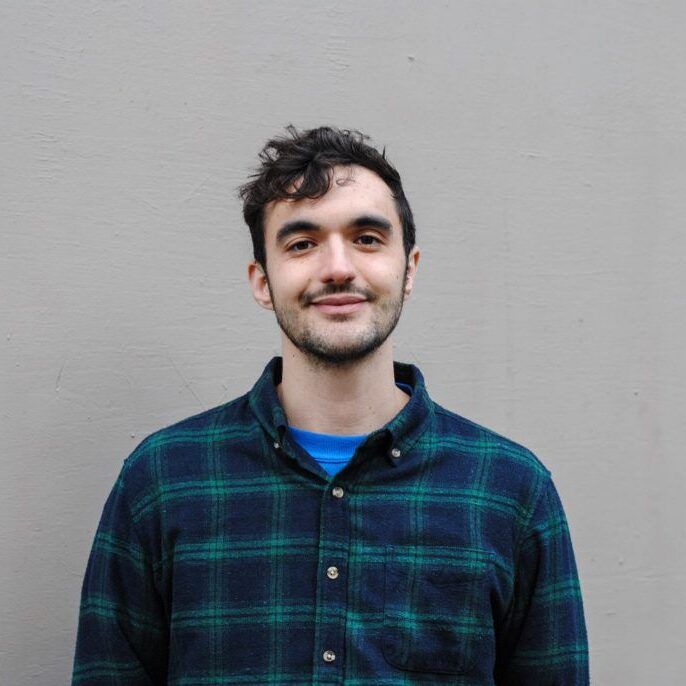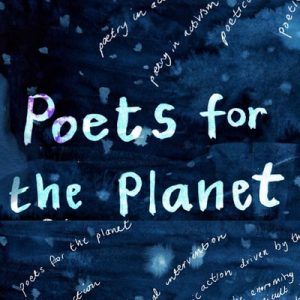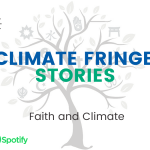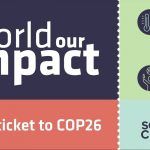
Poetry in response to the climate crisis.
In our blogs we are highlighting the work of Activists in Glasgow, Scotland and beyond. We spoke to Ian McLachlan from Poets for the Planet, a community of kindred poets, performers, artists and creative activists raising their voices to engage with climate and ecological emergency through poetry in all its forms.
Before the interview we have two poems by Poets for the Planet members Jacqueline Saphra and Tamar Yoseloff
Strongylocentrotus Purpuratus
Since we met over that weak latté
that you claimed was too strong and I
indulged in one excellently crisp croissant
of which you ate half without my permission
in Spitalfields where Guatamalan coffee beans
dress the shelves of Crispin’s where they do
the best eggs and you can’t unhear City gents
loudly debating Brexit and brand strategy I
have been wishing you had not mentioned
starving purple sea urchins in their dead kelp forests
off the coast of California where I took a wine tour
of glyphosate-free vineyards only last year
my dear friend I know you didn’t mean to leave me
burdened and despairing but later as I went about
my business among humans in the underground rush
fishing for my Oyster card I found no less
than four dessicated urchins deep in my pocket and
foraging for seaweed at Planet Organic I crunched
scores more of them under my feet and discovered
dozens of starved cadavers scattered amongst
tofu variations in the cold store and even now
as I write this poem from (trust me) my sustainably
recycled chair I feel their responsibly sourced
purple spikes boring into my spine I swear
The Muntjac
reflects our headlights in his eyes;
his scrubby body disappears into the hedge
now white with May,
tar and fern on his delicate hooves
and all at once the road reverts
to emptiness, but something of his presence
stays, an apparition on the verge:
fugitive from walled estates that favoured
curiosities, alien tropics quick and rank,
snaking beyond the boundaries, laying roots.
The road curves past Darks Dale floodlit,
a tractor ploughing furrows, past New Broke Ups,
Wrong Land; and beyond, a tangle of forest,
oaks hunched like old men against the night.
Introduce your collective! How did it come about?
The group was started by Jacqueline Saphra in 2019 when she realised she was repeatedly turning the pages of newspapers to avoid reading articles about climate change, but was still waking in the night panicking about the future she was bequeathing to her children. Jacqueline put out a call on social media for ecologically concerned writers, artists and activists to gather. We held our first meeting at the Poetry Society to the sound of some men in the street enthusiastically revving their parked Lamborghini’s engine, which felt symbolic of the environmental challenges we’re facing.
Since then Poets for the Planet has delivered Verse Aid, an all-day ecopoetry event at the Society of Authors which consisted of 14 micro-poetry workshops, 40 Poem-a-Thon reading slots (livestreamed on YouTube), and an evening gala headlined by Imtiaz Dharker. The event raised nearly £8,000 for environmental charities Bees for Development and Earthwatch.
Over the ‘lockdown’ summer we ran #BeginAfresh, a Twitter campaign which invited writers to post poems addressing the lifestyle changes we must make to combat the ecological crisis. We were delighted that our patrons Simon Armitage and Ian McMillan both contributed filmed performances to the campaign.
We have recently launched a blog and ‘Fresh’, an ecopoetry open mic night, both of which aim to highlight the environmental poetry of Black, Asian, Minority Ethnic, and LGBTQIA+ writers. Blog entries to date have included interviews with Ian Humphreys and Crested Tit Collective. Fresh open mic night will next run on Saturday 12 December, with performance slots available via our Event Page.
How would you describe ‘ecological poetry’ to somebody who has just come across the term?
For me, ecological poetry is poetry created to raise an awareness in the reader/listener of the natural world’s preciousness and current precariousness. It may speak directly of nature, for example, in recognition of nature’s beauty, diversity and mystery. It may speak obliquely – after all, metaphor is key to poetry. It aspires to give nature a human voice, that we speak up for those living beings who cannot speak for themselves. It may also present us with a mirror in which we can observe the greed, ignorance and apathy of a species that is sabotaging its own life-support system.
What is it about poetry that makes it a compelling form to address issues of climate data, crisis, anxiety etc?
Poets, says Shelley in A Defence of Poetry, are ‘the mirrors of the gigantic shadows which futurity casts upon the present’. There are few shadows more substantial than climate change. I think poetry’s effectiveness at representing this shadow lies in its ability to speak to our rational and emotional selves simultaneously. Through poetry’s close observation we can both comprehend and feel the crisis, and this is especially important if we have raised conscious/unconscious mental/emotional barriers to shut it out. Poetry’s stimulation of thought and feeling should, if Shelley was right about the legislative power of poets, bring about a more respectful and harmonious relationship with our planet and fellow Earth-dwellers.
What practices and policies should be improved in the publishing industry?
Poets for the Planet has three main goals (see poetsfortheplanet.org for goals/mission), the second of which is ‘To demand sustainable practices within the publishing industry, arts/poetry/literature organisations and the wider spoken word community, and to insist working with an ecological conscience is an integral practice of contemporary poets.’
We appreciate that a lot of good practice is already going on in the industry. Many publishers recognise that deforestation is a huge source of CO2 emissions and seek to source their paper responsibly. Many are reviewing supply chains, energy-efficiency, plastic use, recycling and business flight policies. Many are addressing inequalities which prevent key voices from being heard. I think the next step is to put that good practice into law. Protecting the planet’s ecological wealth and diversity shouldn’t be purely a commercial choice, it must be a legal obligation. In addition, the publishing industry’s timescale for reducing its greenhouse gas emissions to net zero needs to be more ambitious. Bonnier Books UK has recently pledged to be carbon neutral by 2021; other publishers needs to follow suit.

Nick Cullen
Nick is a past coordinator for the Climate Fringe platform and Climate Fringe Festival, working on strategy, website development and communications. He spent two years at SCCS in the lead up to COP26 and led on developing the Homestay Network, volunteering programme, COVID-19 safety, and many other aspects of logistics and operations in collaboration with the COP26 Coalition.






